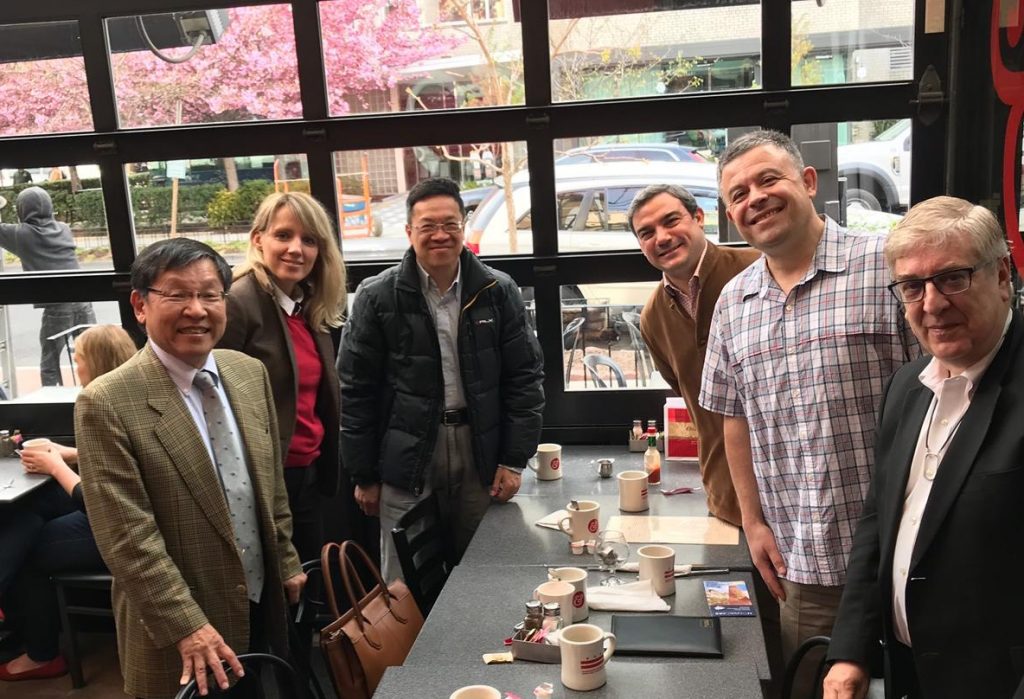Read the 2019 VISION20-Brookings Blue Report on Effective Multilateralism
Three UBC students, Alexandra Martin (MPPGA), Katja Sluga (BA, International Relations), and Natascha Schoepl (BA, Political Science), were appointed as VISION20 (V20) Fellows. They joined V20 Founding Co-Chair Professor Yves Tiberghien and V20 Lead Fellow Tommy Koh (MPPGA) at the 2019 Brookings-VISION20 Workshop on “Beyond Neoliberalism in Emerging Markets” held at the Brookings Institution in Washington, DC on April 10th, 2019.
Founded in 2016, the VISION20 brings together scholars, think-tank leaders, policy practitioners and societal leaders to identify innovative solutions to steer the G20 towards its envisioned potential of facilitating and integrating global economic integration.
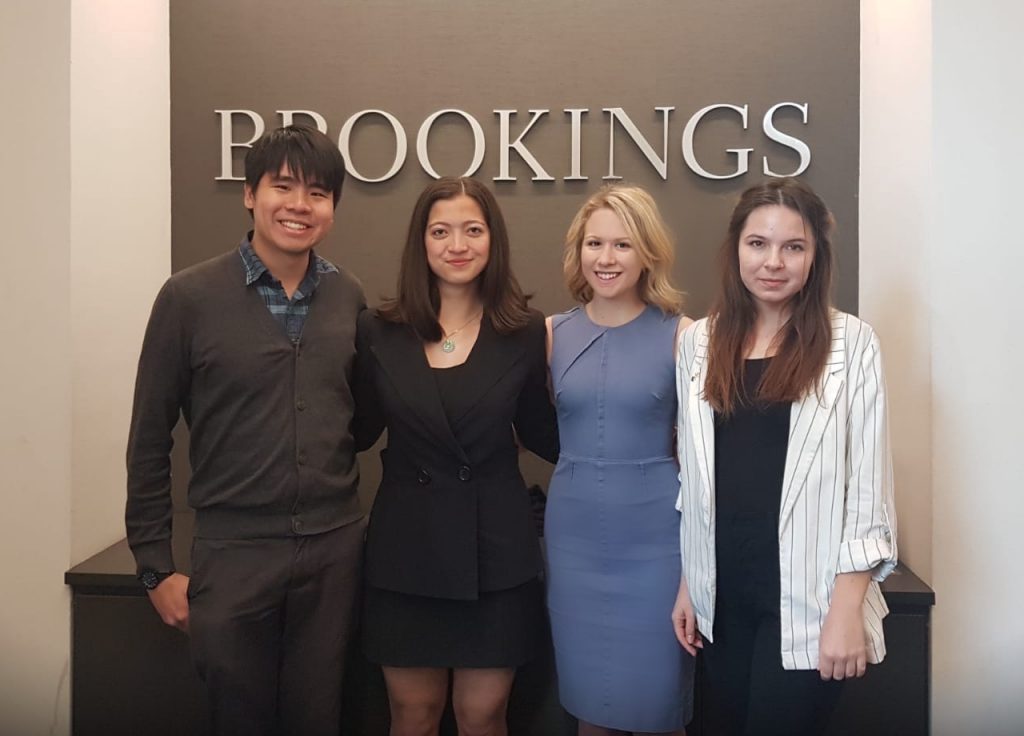

The students were selected from a pool of 30 applicants in a competitive process. Prior to the event, the Fellows produced a memo highlighting differences in East-West media coverage of a critical meeting between European Union leaders and Chinese President Xi Jinping. They also played key roles in coordinating the planning of the workshop and preparing strategies for communication and participant engagement.
While on the ground, the Fellows participated in various working-group meetings and engaged with high-level decision makers including former Ministers, key thought leaders in the thinktank space, and leading academics across global institutions. The relationships formed at the workshop meaningfully strengthened the Fellows’ professional policy networks.
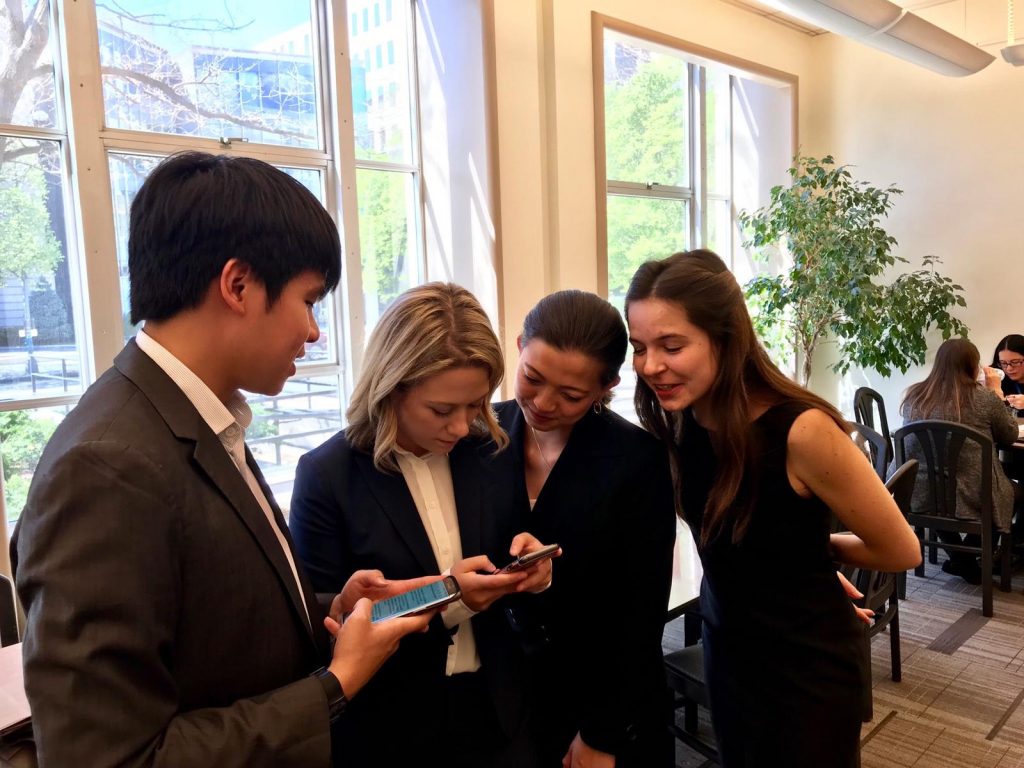

The Fellows subsequently contributed to the VISION20’s 2019 Blue Report. This report will be shared broadly with the policy and think-tank community through the participants of the workshop and affiliates of the VISION20.
The 2019 VISION20-Brookings Blue Report on Effective Multilateralism is available for download at www.thevision20.org
Here are some reflections on the workshop from the Fellows:
“Returning to the Brookings-V20 Workshop for the second year demonstrated the continuity of certain key topics that are critical to the global order. There is an urgent need for creative thinking about key issues such as global hegemony and the prospect of a post-neoliberal world. These discussions build real momentum toward lasting change.”
– Tommy Koh
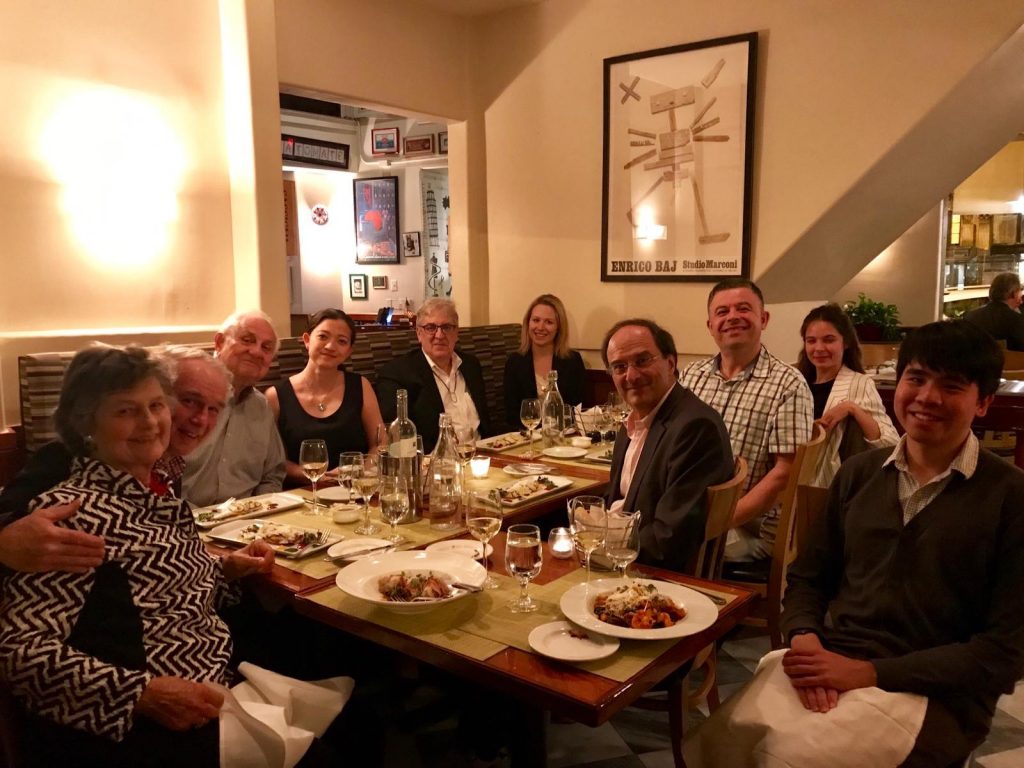

“Technology and its various impacts were raised in several different contexts throughout the day’s events. While mostly presented as an after thought, especially in comparison to more traditional areas of debate, the frequency in which that ‘thought’ was arising indicates the subject matter’s growing influence. When taken in conjunction with the G20’s capacity to bring more voices to the conversation than the G7, the ubiquity of technological innovation’s impacts is a compelling subject for the G20 to elevate in the future.”
– Alexandra Martin
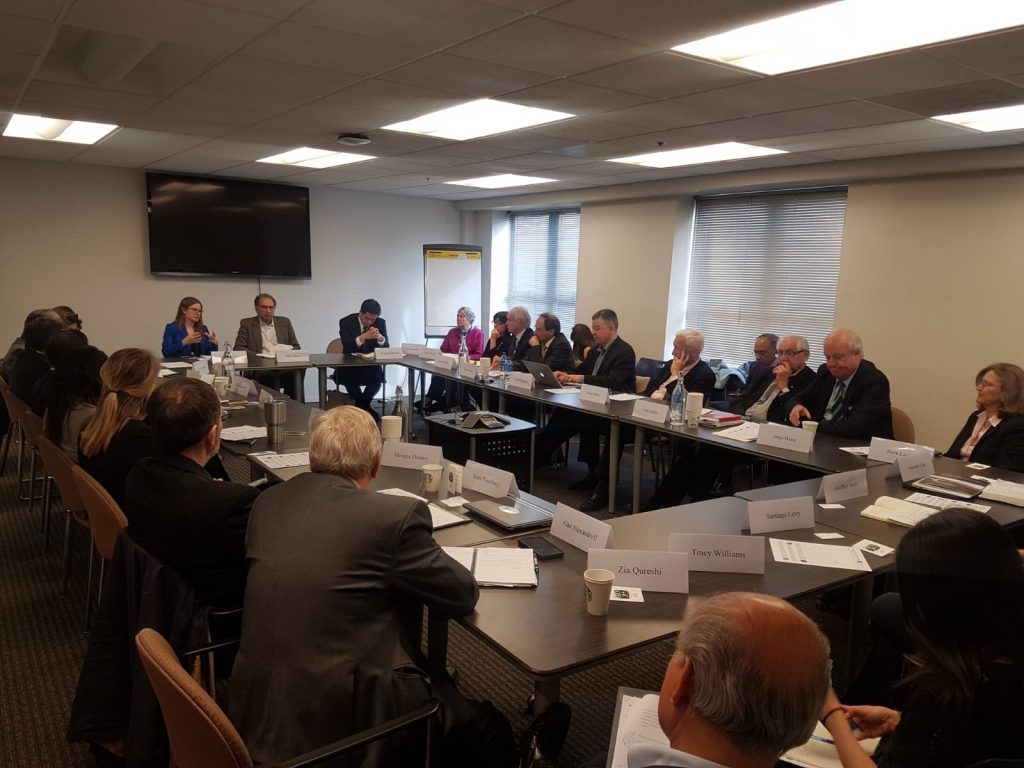

“By bringing European and Latin American voices to the discussion about China and the West, two ideas have been discussed. Firstly, even China and the US are the two main actors in global politics right now, they cannot be the only two participants in the conversation as US-China relations importantly affects other global players. Addressing the same idea, the conclusion with much support among participants has arisen, that the term “the West” should be clearly defined and/or eliminated from the conversation as it is harmful and confusing.”
– Katja Sluga
“It was inspiring to be part of the conference and to listen in on all the conversations about the influence of China, the world moving away from neoliberalism and how to restructure the global order. Being around so many stimulating scholars, think tank leaders, professors and leaders made me realize the importance for cooperation and collaboration on a large-scale to nurture new ideas.”
– Natascha Schoepl
